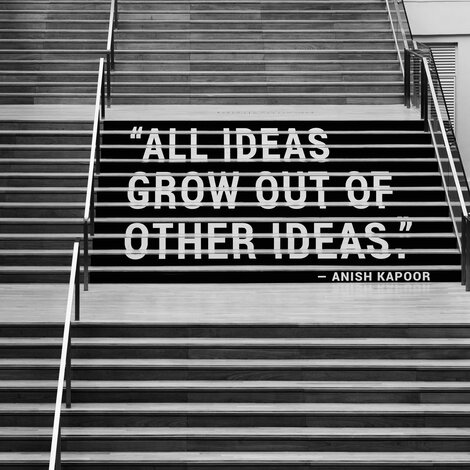- DE
- EN

MUNICH DIGITAL Services
MUNICH DIGITAL is your strategic consultant and companion for data-driven business. We work with you to shape the path to a data-supported organization. We analyze the market and your initiatives. We develop dashboard solutions and implement them end-to-end together with you.
You can also book quick formats with us, such as workshops and quick analyses.
Data is always plentiful. The challenge is to establish an open data culture and to develop concrete use case secnarios. We accompany you in scoping and work with you to define which stakeholders are using data for what purpose and how it needs to be provided and prepared. We also examine all relevant data sources and IT systems.


Two things are crucial to extracting information from data: the right metrics and key performance indicators (KPIs) for comparison. These indicators need benchmarking in order to be able to classify performance. We support you in defining these values, also using statistical methods based on historical data.
In an increasingly fragmented communications world, data from a wide variety of sources is available in different structures and dimensions. These must be harmonized and made comparable. MUNICH DIGITAL works with you to develop logic for analytics, which is essential as a template for the right data structure.


The use of data is closely linked to data literacy in companies. Both at the decision-maker and user level. We support companies in introducing data-driven processes through appropriate learning concepts. The aim is to achieve maximum user acceptance of data solutions and the deep integration of data analytics into decision-making processes.
Tableau from Salesforce is one of the best-known BI & dashboard solutions on the market. It offers comprehensive visual and analytical features. We at MUNICH DIGITAL have been building and developing Tableau dashboards for companies for years. At the same time, we are up-to-date beyond the standard, including with regard to AI solutions such as ChatGPT.


Power BI is the dashboard solution from Microsoft and is available in the Office365 package. This makes it the first consideration for many companies when it comes to a quick solution. MS Power BI offers the advantage that data protection and purchasing are already clarified in the most commonly used Office packages and can therefore be started quickly and rolled out to users. We have experience with Power BI as well as Tableau and other dashboard solutions.
You can also look at communication data the other way around - in the sense of data communication. Then they become a tool in the communication box through visual preparation. Data storytelling is an upcoming topic, also because digital media in particular are more likely to use information that is compressed and presented visually than long press releases. In internal digital communication, prepared data helps enormously in conveying information.

The MUNICH DIGITAL CX Score is an evaluation model for customer experience, developed together with Macromedia University. It considers all contact points/occasions and delivers results for the areas of information, purchase, service and relationship. This score is an end-to-end product and therefore bookable for every company.


Based on the CX Score, we have developed the Corporate Influencer Score together with DATEV. This evaluates both the degree of maturity of a company´s influencer project and its internal and external impact. The MUNICH DIGITAL CI Score is currently the only holistic evaluation model on the German market.
With our own clustering models, we are able to group according to customer, user, product or content segments. In this way, we enable deep, qualitative analysis of communication that is fully automated and can therefore handle large amounts of data. Cluster analyzes can also be used for the systematic evaluation of surveys.


Based on cleanly structured data, we set up natural language and topic modeling processes in order to be able to evaluate communication in detail. This allows us to find context and topic areas, create more precise sentiment analyzes and identify customer or user criticism. This analytics can also be used in customer service areas when it comes to product reviews or email communication. Our many years of experience in the customer experience area also help us here.
We know most of the interfaces and Rest APIs from various projects - whether social media sources, YouTube, podcast platforms and web analytics such as Google Analytics, Adobe Analytics, Piwik (now Matomo) or employee apps such as Staffbase. We are therefore able to quickly and automatically extract data from these sources.


Extract – Transform – Load. This is always the same sequence for data automation. Data must first be extracted from the data sources and transferred to a data storage. These are often large and unstructured amounts of data. From there they are transformed according to the specified data structure and analysis logic so that the actually relevant data is written into target tables. In a final step, these target tables are loaded into a target environment (database). The data for visualization is made available there.
The same applies to coding as to databases. We code in the customer's environment or in coding platforms selected by us. In any case, we document all codes so that they can be viewed, understood and migrated by our customers at any time. We favor Python as a programming language because we believe it is the industry standard in data science, ensuring that code can be continuously developed by a wide range of developers and data scientists.


There are different programming languages for data extraction and transformation. Python has established itself as the standard in the field of data science. This is mainly because Python has various libraries that can process data in a standardized manner. At MUNICH DIGITAL there are several data scientists with deep Python knowledge who make these libraries usable or code them themselves. In this way we ensure an appropriate industry standard.
For us, there are two ways to work in databases. If we operate in the customer's ecosystem (e.g. via virtual machine or partner workplace), then we use the systems provided to us. Or we operate the database ourselves in the cloud (e.g. Google BigQuery). In this case, we also administer the system. The requirements for the data engineer are ultimately the same and can be completely taken over by us.


In the area of ecosystem architecture, we see ourselves as a partner to the specialist departments as well as to the IT departments. In our projects, we are used to the IT departments being the lead or at least being involved early on. From our point of view, this is also necessary because the share of technology is increasing and must now be seen as a decisive factor in business intelligence projects. Our understanding of the specialist areas ensures that the projects do not lose their business focus.
Artificial intelligence, machine or deep learning have been under discussion for years. ChatGPT has given this discussion a whole new dynamic. In fact, the speed of development is enormous. ChatGPT already delivers well-structured information based on specific queries. ChatGPT Enterprise makes the topic even more relevant for use in companies. We develop our own machine learning models and/or use existing systems such as ChatGPT (which is also based on Python)

In the first step, we see ourselves as an advisory unit when it comes to data-driven or data-supported work in companies. This requires strategic planning in a multi-year scenario. Concrete solutions also belong there. Various projects in recent years for large and medium-sized companies, both nationally and internationally, help us to analyze a wide range of situations, plan them in a targeted manner and actively support them.


Thanks to our expertise in data science, visualization and engineering, we are able to develop and support data solutions end-to-end. For us, the solution is always our focus. After strategic planning, we usually cut projects up into quickly implementable solutions (POC or MVP) that can be tested by users and further developed from there. The first step is the use case, not necessarily the data automation.
If companies initially or permanently want to operate their data solution externally, we can take care of this completely. We have been working for our own developments and on behalf of customers in cloud-based ecosystems for years - all in accordance with GDPR requirements and usually also in German data centers. Hybrid solutions are also possible, in which the data science applications are owned by us and connected to internal systems.


At MUNICH DIGITAL project managers work like product owners. Customers are assigned a central contact person who, together with them, manages the entire project centrally and forms the interface to possible technology providers. We are used to working in sprints. Time and budget control are in one hand and fully transparent.



